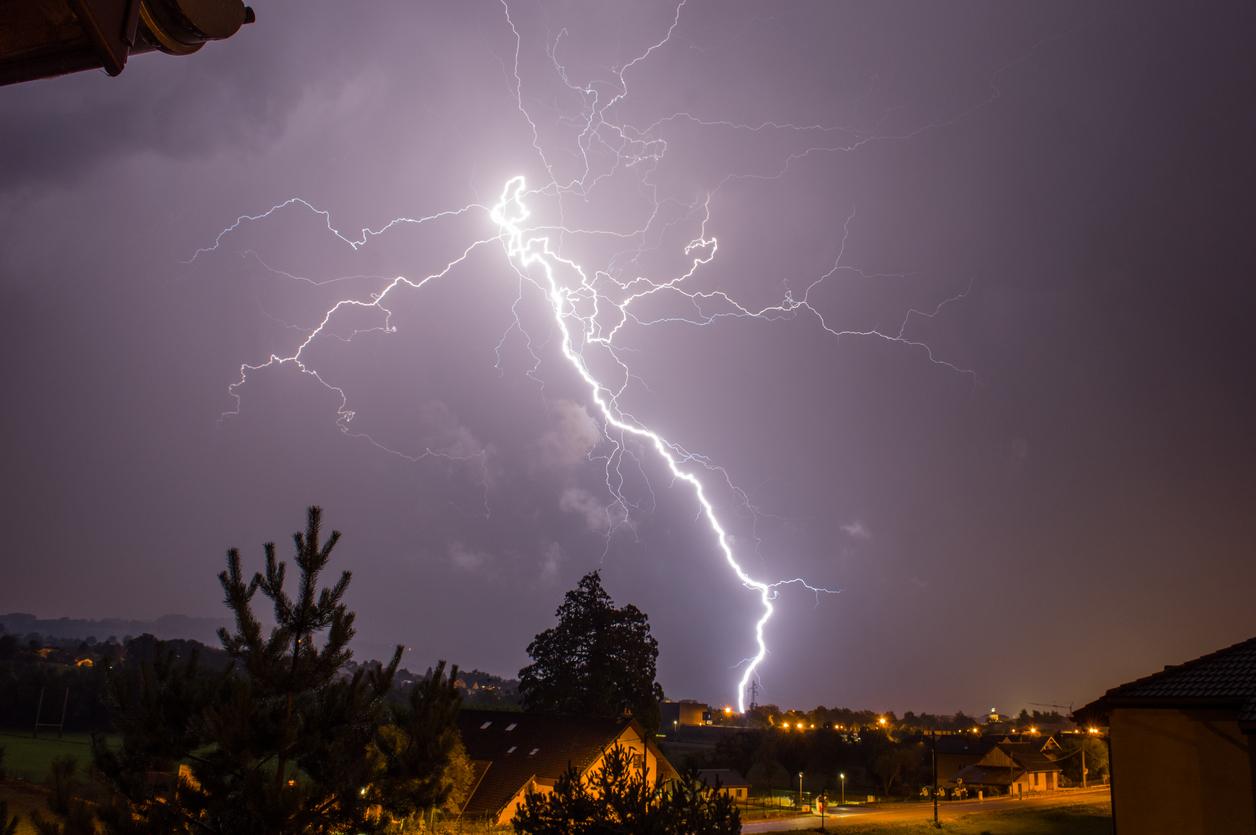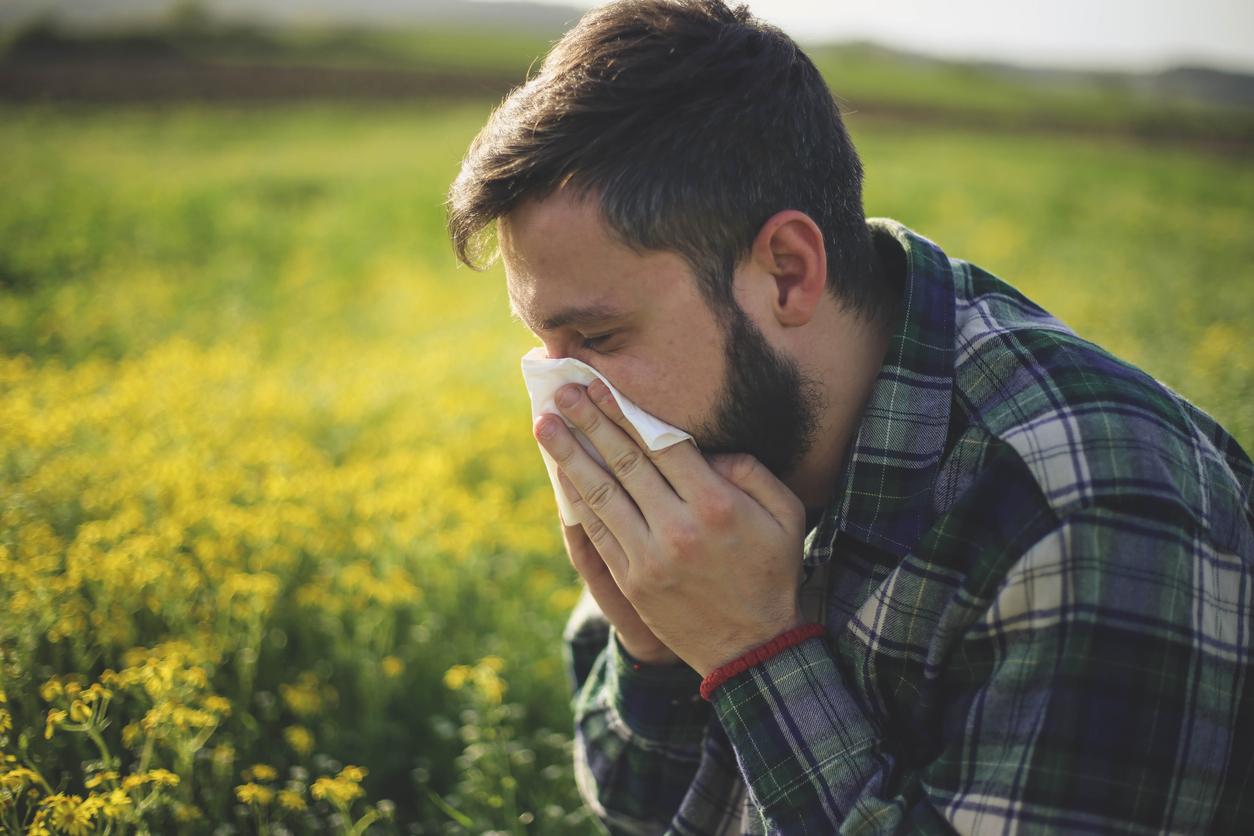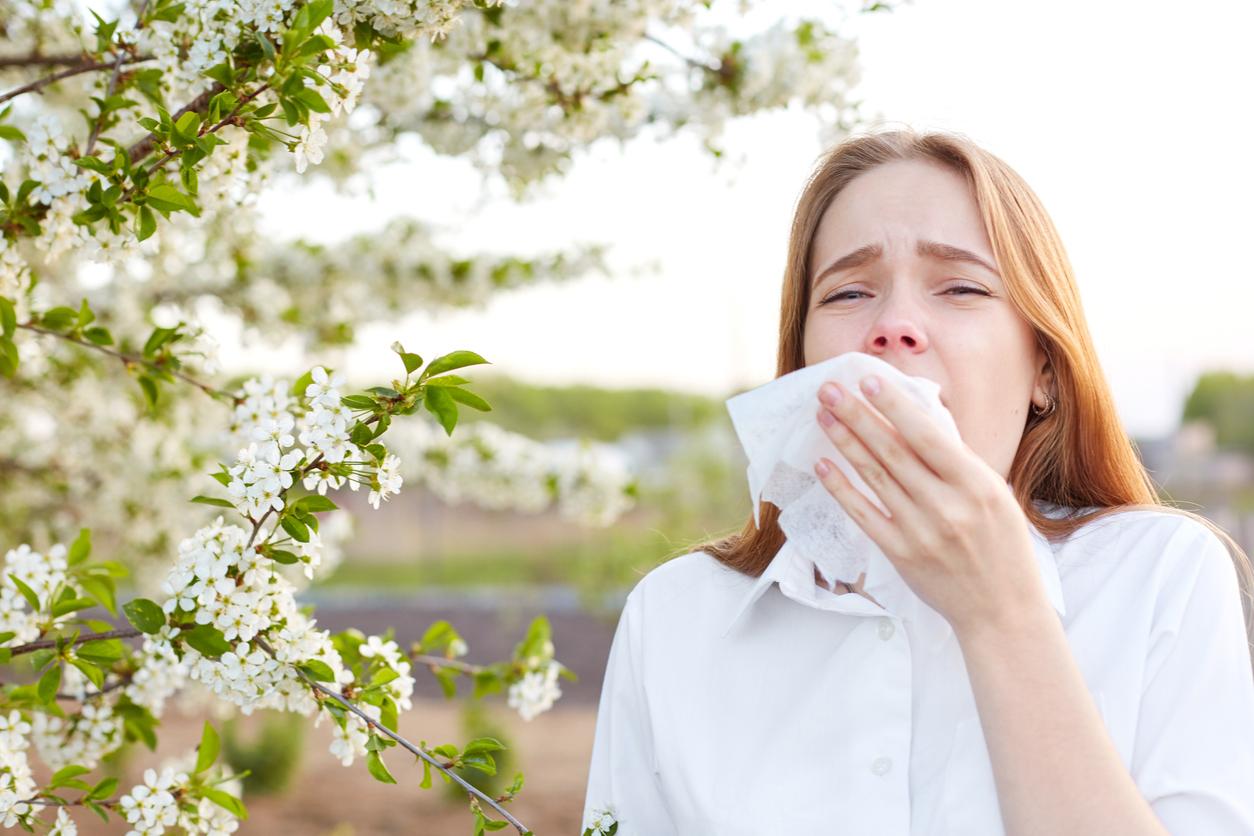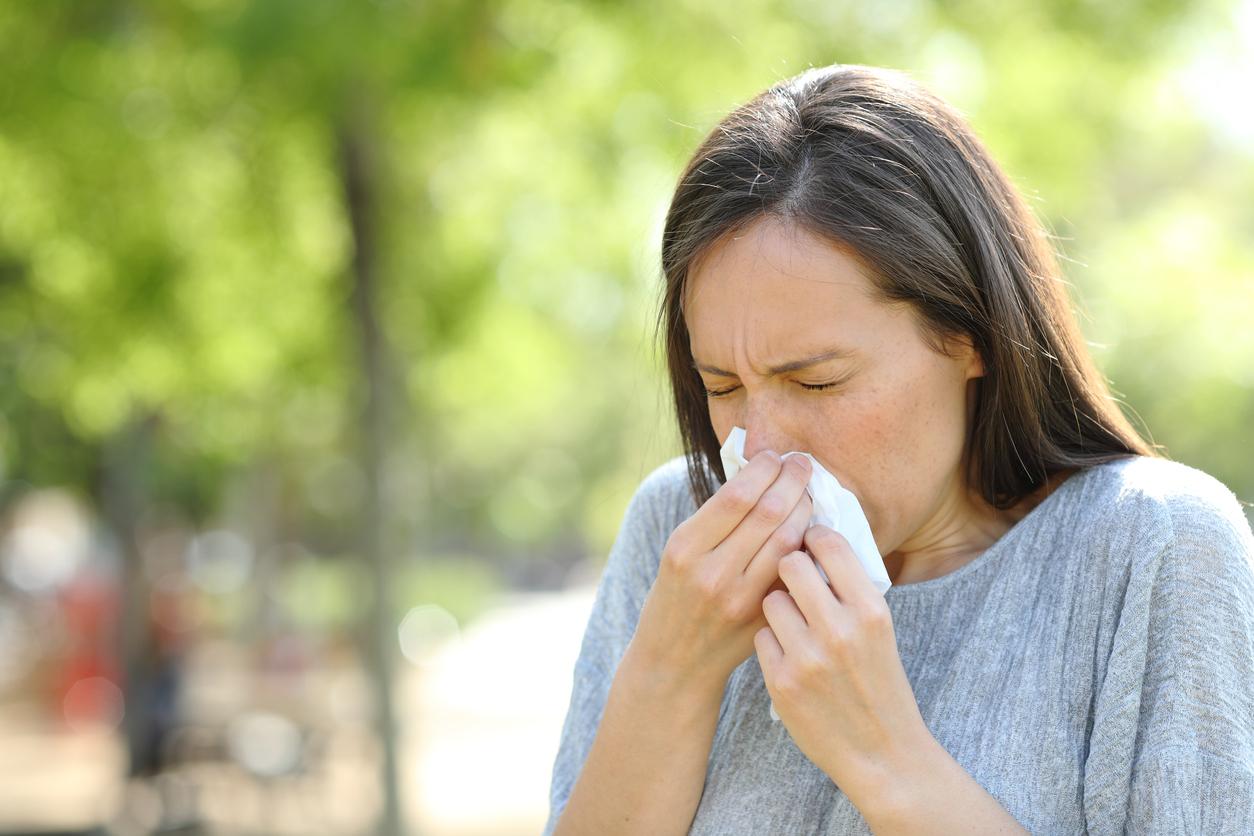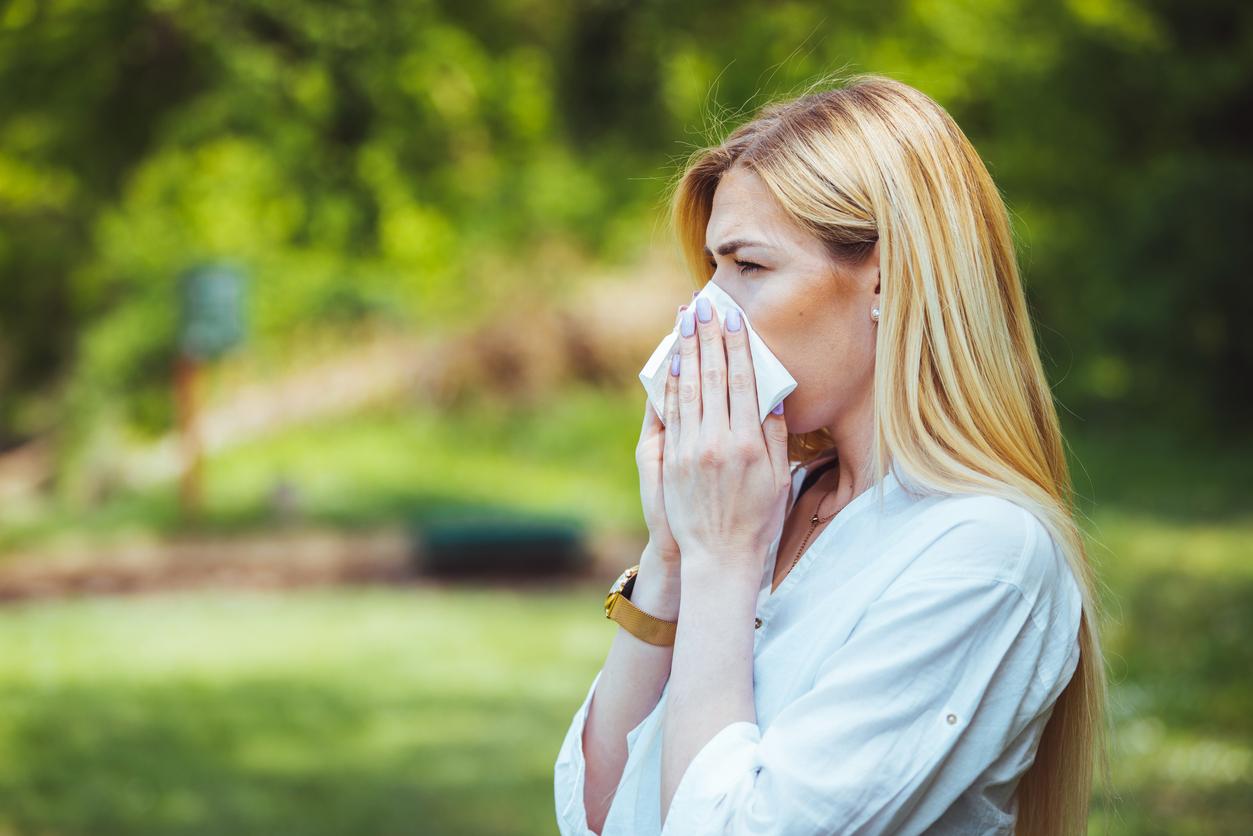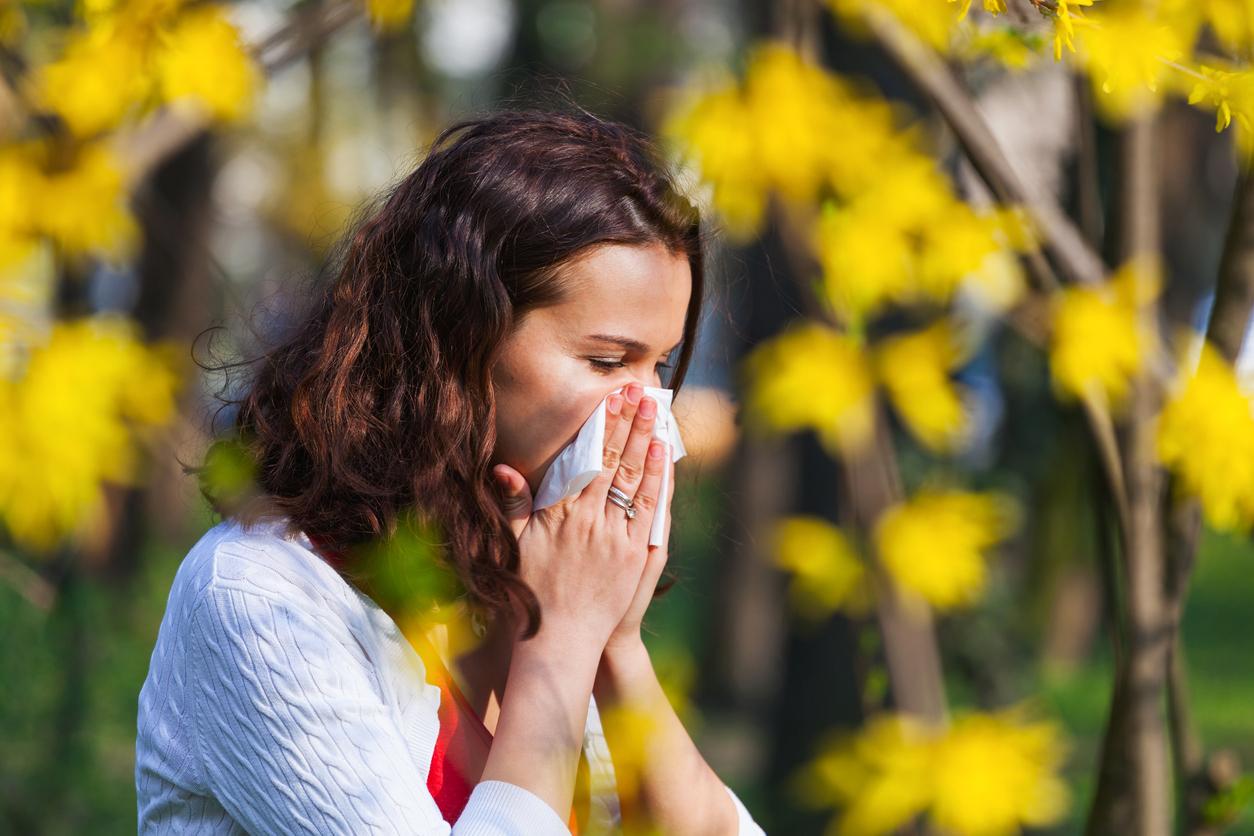The return of summer temperatures at the beginning of June is promoting the emission of grass pollen… and therefore allergy attacks across the whole of France, with the exception of one department.
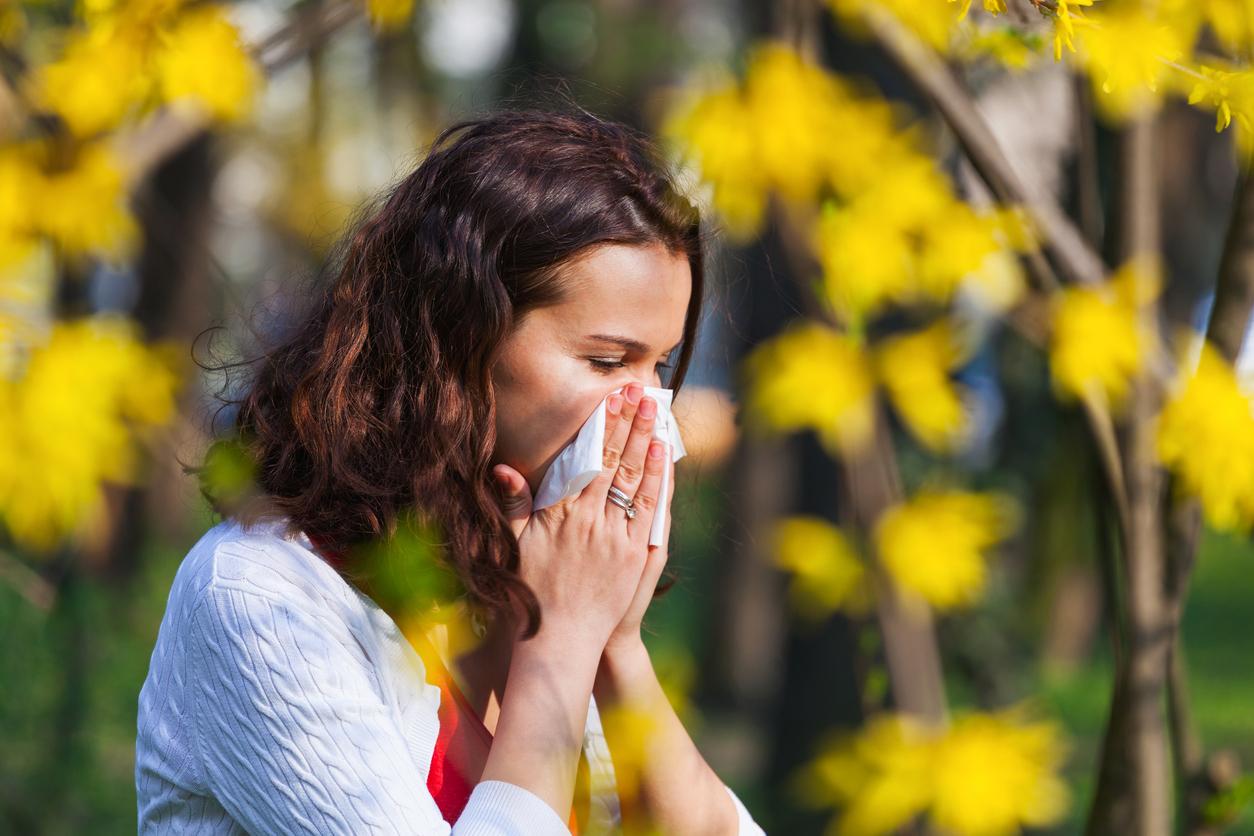
- With the return of fine weather, there is a strong presence of grass pollen in the air.
- The risk of allergies is therefore high throughout mainland France, with the exception of Finistère.
- Natural remedies may reduce symptoms or decrease the frequency of attacks.
While we are delighted to finally see the sun shine and the thermometer rise, this first week of June promises to be very complicated for people suffering from grass pollen allergies.
Beware of grass pollen
“Beware of grass pollens which are very abundant in the air and can seriously bother allergy sufferers! The risk of allergies is high throughout the country except in Finistère where it is average. This first week of June is looking summery. Which will encourage the emission of grass pollens”explains the National Aerobic Surveillance Network (RNSA) in its update of June 3, 2024.
People allergic to other pollens should breathe easier. The pollens of pellitory (Urticaceae) and olive trees (Oleaceae) found around the Mediterranean, only represent a low to medium level allergy risk. And, it will be low for other flowering herbaceous plants such as plantain, nettle and sorrel as well as for oak pollens.
On the other hand, you should keep an eye on the lime trees. They are coming into bloom and it is possible to present symptoms near them, notes the RNSA.
The week is looking very complicated for those allergic to grass pollen because of hot and sunny weather which will promote the emission of high concentrations of pollen into the air!
Find the 5-day forecast here: https://t.co/ZKwESsXLDA#pollens #allergies pic.twitter.com/xMmH45oS7F— National Aerobiological Surveillance Network (@rnsa_pollen) June 3, 2024

Allergic Rhinitis: Natural Remedies to Relieve Symptoms
Pollen allergies can be relieved with symptomatic treatments and antihistamine medications. However, natural solutions can also help reduce hay fever symptoms.
The first tip is to regularly rinse the nose with physiological serum or with a nasal spray of sea water with added manganese. Plants can also help reduce attacks.Pasteur Institute of Lille reports on its website that tarragon with its anti-allergenic properties as well as thyme (natural expectorant) and nettle are interesting in the fight against allergic rhinitis.
“True lavender essential oil is also very effective in reducing sneezing attacks and relieving respiratory tract congestion.”specifies the health organization. If the discomfort persists, do not hesitate to consult a health professional.







